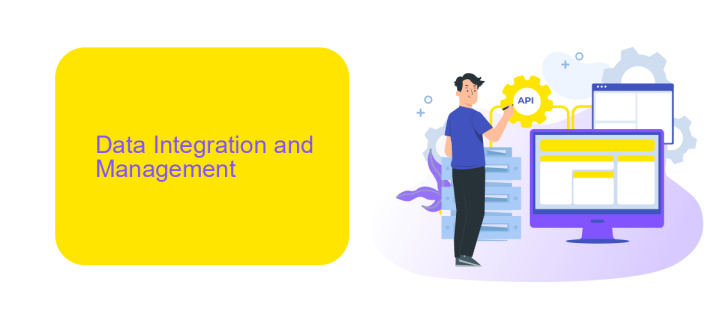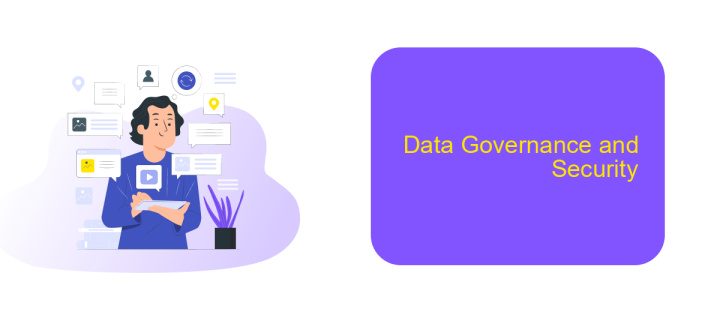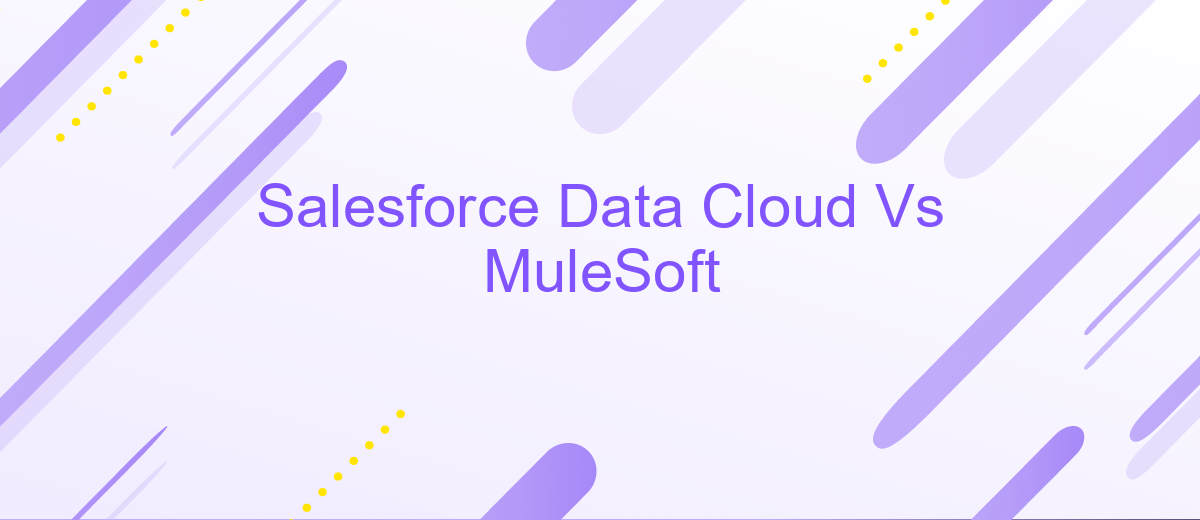Salesforce Data Cloud Vs MuleSoft
In today's rapidly evolving digital landscape, businesses seek robust solutions to manage and integrate their data efficiently. Salesforce Data Cloud and MuleSoft are two prominent platforms that offer distinct capabilities for data management and integration. This article explores their key features, differences, and how each can empower organizations to streamline their operations and drive innovation.
Introduction
In today's fast-paced digital landscape, the ability to seamlessly integrate and manage data across various platforms is crucial for business success. Salesforce Data Cloud and MuleSoft are two powerful tools that offer distinct solutions for data integration and management. Understanding the differences and advantages of each can help organizations make informed decisions to optimize their operations.
- Salesforce Data Cloud: A robust platform designed to centralize and manage customer data, providing a unified view for better decision-making and personalized experiences.
- MuleSoft: A comprehensive integration platform that connects applications, data, and devices with APIs, enabling seamless data flow and operational efficiency.
Both platforms offer unique benefits, but choosing the right one depends on your specific business needs and integration requirements. Additionally, services like ApiX-Drive can further enhance your integration capabilities by offering automated workflows and simplifying the connection process between various applications. By leveraging these tools, businesses can achieve a more cohesive and efficient data management strategy.
Data Integration and Management

Salesforce Data Cloud and MuleSoft are both powerful tools for data integration and management, but they serve different purposes. Salesforce Data Cloud is designed to unify customer data from various sources, providing a comprehensive view of each customer. It excels in data harmonization, ensuring that data from different systems is consistent and accurate. This platform is particularly useful for businesses looking to enhance their customer relationship management (CRM) capabilities by leveraging a unified data model.
On the other hand, MuleSoft specializes in connecting applications, data, and devices through APIs. It enables seamless integration across diverse systems, making it easier to automate workflows and enhance operational efficiency. Services like ApiX-Drive can complement both platforms by providing easy-to-use tools for setting up and managing integrations without extensive coding. ApiX-Drive can help bridge gaps between Salesforce Data Cloud and other business applications, ensuring smooth data flow and real-time synchronization. This combination of tools offers a robust solution for comprehensive data integration and management.
Data Analytics and Insights

When it comes to data analytics and insights, both Salesforce Data Cloud and MuleSoft offer robust solutions, but they cater to different needs. Salesforce Data Cloud excels in providing real-time analytics and actionable insights, making it ideal for businesses looking to leverage customer data for immediate decision-making. On the other hand, MuleSoft focuses on integrating data from various sources, enabling comprehensive analytics across multiple systems.
- Salesforce Data Cloud: Offers advanced AI-driven analytics, real-time data processing, and seamless integration with other Salesforce products.
- MuleSoft: Specializes in API-led connectivity, enabling the integration of data from disparate systems for a unified analytics experience.
- ApiX-Drive: Facilitates the setup of integrations between different platforms, enhancing the data analytics capabilities of both Salesforce Data Cloud and MuleSoft.
In summary, Salesforce Data Cloud is tailored for businesses needing immediate, actionable insights from customer data, while MuleSoft excels in integrating data from various sources for comprehensive analytics. Tools like ApiX-Drive can further enhance these capabilities by simplifying the integration process, ensuring seamless data flow and more accurate insights.
Data Governance and Security

Data governance and security are critical aspects when comparing Salesforce Data Cloud and MuleSoft. Both platforms offer robust solutions to ensure data integrity, compliance, and protection. Salesforce Data Cloud provides a comprehensive suite of tools for data management, including data classification, encryption, and access controls. It ensures that sensitive information is securely stored and only accessible to authorized personnel.
On the other hand, MuleSoft emphasizes API-led connectivity, enabling seamless integration while maintaining high security standards. MuleSoft's Anypoint Platform includes features like data encryption, threat protection, and role-based access control to safeguard data across various integrations.
- Data classification and encryption
- Access controls and role-based permissions
- API security and threat protection
- Compliance with industry standards and regulations
Integrating these platforms with third-party services such as ApiX-Drive can further enhance data governance. ApiX-Drive simplifies the integration process by automating data transfers and ensuring secure connections between different systems. This ensures that data governance policies are consistently applied across all integrated platforms, providing an additional layer of security and compliance.
Pricing and Customer Support
When it comes to pricing, Salesforce Data Cloud offers a subscription-based model with various tiers to accommodate different business needs. The cost can vary significantly depending on the level of data storage, processing capabilities, and additional features required. On the other hand, MuleSoft employs a similar subscription-based pricing structure but focuses on the number of integrations and API calls. Both platforms offer custom pricing plans for enterprises with specific requirements, making it essential to contact their sales teams for detailed quotes.
Customer support is a critical factor for both Salesforce Data Cloud and MuleSoft. Salesforce provides 24/7 support through multiple channels, including phone, email, and live chat. They also offer a comprehensive knowledge base and community forums. MuleSoft matches these support options, with additional emphasis on developer resources and API management. For businesses looking to streamline their integration processes, services like ApiX-Drive can be invaluable. ApiX-Drive simplifies the integration setup and provides robust support, ensuring seamless data flow between various platforms.
- Automate the work of an online store or landing
- Empower through integration
- Don't spend money on programmers and integrators
- Save time by automating routine tasks
FAQ
What is the primary difference between Salesforce Data Cloud and MuleSoft?
Can Salesforce Data Cloud be integrated with other platforms?
Which tool is better for real-time data processing?
How do I choose between Salesforce Data Cloud and MuleSoft for my business?
Can I automate integrations between Salesforce Data Cloud and other applications?
Apix-Drive is a universal tool that will quickly streamline any workflow, freeing you from routine and possible financial losses. Try ApiX-Drive in action and see how useful it is for you personally. In the meantime, when you are setting up connections between systems, think about where you are investing your free time, because now you will have much more of it.


